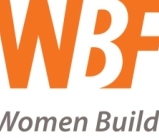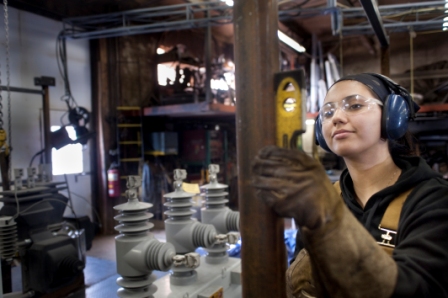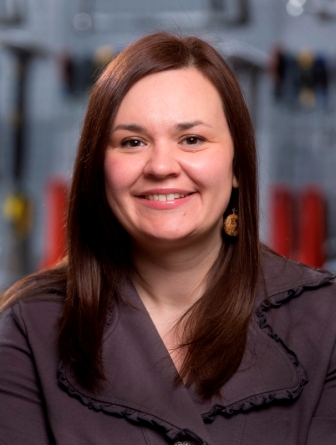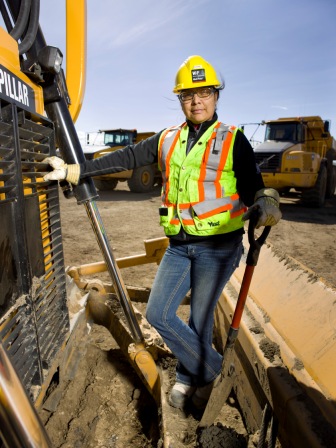For the past decade or more Canadian women have been playing an important role in Alberta’s construction industry, an industry that is always in need of both labourers and skilled tradespeople. Construction workers are part of an industry that builds and maintains houses, apartment buildings, schools, office buildings, highways, oil refineries, bridges, shopping centres, recreational areas and more. A declining workforce has seen an influx of foreign workers coming to Canada to fill the labour shortages within various sectors, but it’s Canada’s women who are stepping up and making a difference in the construction industry. Today, women are not only training for and accepting jobs in the various trades-related industries and businesses, they are succeeding, excelling and opening the doors for others to follow.
Construction workers, like workers in any area of endeavour, have to be trained and prepared for the everyday tasks set before them. That’s where the non-profit society, Women Building Futures (WBF), comes in. They play an important role in pre-trades training by helping women interested in pursuing construction-related employment to achieve their goals.
Erin Meetoos is an apprentice welder; she got her start in the trades after attending a WBF information session.
“My dad and brothers are welders as are my uncles and cousins and when I decided I wanted to pursue the same career, I came to Women Building Futures.” she notes, in a YouTube video presentation to encourage more women to look to the trades as a career choice. “I was a bit lonely at first, being so far away from home, but if you want something you can’t just push your dreams aside.”
When she enrolled in the WBF program she found it to be “a very welcoming (environment) and the ladies are very nice; they do a lot of one-on-one with you and if you have questions or concerns they are always there. ”
She said the staff and the professional instructors teaching the various courses help students with the work experience programs and make learning a pleasant experience.
“The hands-on part was the best part because you got to learn a little bit about everything,” explains Meetoos. “I got to do some electrical stuff and some carpentry; all the things you get to work on really help you and I’ve been able to use that knowledge on the worksite, even though I’m not involved in those trades.”
Women Building Futures offers unique training for women
“When our graduates are ready for the workplace they are familiar with the job they’re taking on, they’ve got the training they need and they’ve got the attitude to succeed,” assured WBF Aboriginal Engagement Manager Anna Wowchuk. “Our graduates have the traits that every employer looks for. We invite your readers to check out our website and call us for more information. Class sizes are limited; call early for the best chance of making it into our next Information session.”
Wowchuk represented WBF during the recent Pathways Youth-in-the-Trades National Conference, which was held in Edmonton during the first three days of April.
“Our graduates,” assured Wowchuk, “make excellent trades people. When they arrive at the worksite they are ready, willing and able; every person we send into the workplace has graduated from a thorough and extensive training program. Our mandate is simple: we attract more women into the construction trades; we provide trades training that meets the needs of women and industry; we provide mentorship and long-term support for women just entering the trades and for those already in the trades.”
The WBF program also examines and addresses the systemic barriers to the recruitment, training and retention of women in the trades and works diligently to increase the numbers of tradeswomen.
During her presentation at the Pathways Conference, Wowchuk talked about the various WBF programs, Pre-Apprenticeship, Heavy Equipment Operators, Safety Certification, Workplace Culture and Math Boot Camp. She also spoke about the money that can be earned by those who complete the WBF program and go on to become journey women.
“The average salary for women graduating from WBF is $73,000 a year,” she noted, explaining that the majority of women who come into the program are interested in pursuing careers as heavy equipment operators, a job that earns about $20 an hour for first year workers and $32.87 an hour for experienced and seasoned workers.
In 2012 WBF graduated 108 students, 29 were Aboriginal women. The organization is currently working with more than 200 employers across the province.
Construction work, like any other field of endeavour, isn’t for anyone, but there are certain criteria that will help ensure the success of women who are pondering a future in the trades.
“Success in the construction sector will depend on your interest, ambition, skills, physical fitness, health and work ethic,” noted Wowchuk. “To succeed you will need to be physically fit, have a passion for learning, a positive attitude, a strong work ethic and personal initiative. You’ll also need to be prepared to fit into a construction industry workplace that is predominately male.
“If you have a sincere desire to succeed in the construction-related trades fields, you will succeed,” she assured. “We have a very successful graduation rate and more than 90 percent of our graduates attain work and retain work in their field or trade of choice.”
The WBF’s 17-week Journeywoman Start training program is designed to help women prepare for and succeed in construction, oil and gas jobs. When participants finish the program they write a level 5 Apprenticeship exam.
The intensive program begins with a week-long session that includes Worksite Safety Certification, Standard First Aid/CPR Level One, Scaffold Safety Training, Fall Protection, Forklift Operator Safety Certificate and the successful completion of CSTS/WHMIS and H2S workshops. The second phase of the program involves eight weeks of hands-on skills training, including basic tools, carpentry, electrical, plumbing, pipefitting/steamfitting, welding, sheet metal and blueprint reading. Weeks 10 and 11 include courses on Workplace Culture Awareness for Women, Career Development and Financial Management.
Four weeks of academic training follows. Depending on the career path of choice, education could be an important factor because Grade 10 Math and English are required for some trades, while Grade 11 Math is needed for others. During the third phase of training, participants requiring extra math will spend several weeks working within the WBF’s Math Boot Camp.
The final two weeks of training comes via work experience, where graduating students participate in a workplace environment and finish learning the ins and outs of the job and the expectations of the employer and the industry.
The WBF training facility is also equipped to help provide housing for women participating in the 17 week program. The organization has 42 housing units that can be used by those qualifying for and accepted into the program.
As WBF’s Aboriginal Engagement Manager, Anna Wowchuk works with numerous organizations and communities to spread the word that opportunity awaits women interested in pursuing a career in the trades. She encourages anyone interested in learning more about the trades programs and opportunities to check out the WBF website and the interesting comments on the YouTube link from Aboriginal women already involved in the trades and already meeting their goals. You can find out if the construction industry is right for you by visiting the WBF website and clicking on the Application Process icon.
“The process begins by coming to one of our Information sessions,” explained Wowchuk.
The next one is scheduled for April 22 from 6:30 to 8:00 p.m. The next six Information and Career Decision Making Workshops will take place on April 25 and on May 2, 6, 10, 13 and 16th.
Alberta’s construction industry is one of the largest and busiest in the country. There are more than 50 different trades in Alberta that are hiring on a year-round basis. The industry is marching steadily and progressively into the future; jobs are available, work is plentiful and pay scales are high. It seems that the biggest problem facing the industry is the difficulty in locating and hiring qualified workers.
To ensure the vibrancy of the construction industry, business leaders have identified numerous solutions to workforce shortages, but none more significant than the realization that women can and are playing an increasingly important role in the make-up of the province’s second largest industry.
“The challenge of attracting more women to the construction industry is two-pronged,” notes the Construction Owners Association of Alberta (COAA). “Cultivating greater interest among women in non-traditional construction careers is a start; simultaneously the workplace must be made more accommodating to a co-ed workforce.”
The COAA went on to say that opportunities are particularly good for Aboriginal Albertans.
“The Aboriginal community,” noted the organization in its Position Paper, “a young and growing community, represents a largely untapped demographic, sometimes conveniently located near large, “remote” construction projects. To the extent that employment or contracting opportunities require unique consideration, best practices such as Learning from Experience by the Alberta Chamber of Resources, can facilitate consultation and partnership with First Nations and Métis communities.
To learn and listen to what the WBF program has to offer, check out the YouTube video at: http://www.youtube.com/watch?v=XAeaBfbOJek.
For more information about WBF and its training initiatives visit www.womenbuildingfutures.com or email Anna Wowchuk at: [email protected]. Call (780) 452-1200 or toll free 1-866-452-1201.
by John Copley






I’ve had experience in Rocktruck and into for loader and excavator, BT due to 1 individual got demoted to laborer n I want certification to back me up so 1 person doesn’t keep me from doing something I love.